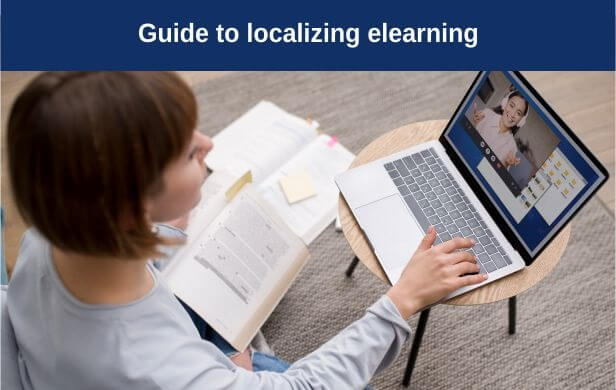





In today's globalized world, eLearning has become an increasingly popular way of educating people worldwide. However, for an eLearning course to be effective, it needs to be localized to meet the needs of the target audience. Localizing eLearning involves adapting the course content, language, and culture to suit the needs of learners in different regions.
Before localizing your eLearning course, you need to identify the language, dialect, and educational background of the target audience to ensure that the course content is relevant and engaging for them.
Once you have analyzed the target audience, the next step is translating and localizing the content. This involves converting the course material into the local language and adapting it to the local culture. Localization also includes adapting images, videos, and other multimedia content to suit the target audience.
It is an important aspect of localizing eLearning. The course content must be culturally appropriate and relevant for the target audience. This involves understanding the target audience's cultural norms, values, and beliefs and adapting the content accordingly.
This involves adapting the eLearning course's navigation, buttons, and other interface elements to suit the target audience. This includes adapting the layout and design of the course to suit the local language and culture.
It is also important to localize the audio and video content if any in the elearning course. This involves recording the audio and video content in the local language and adapting it to suit the local culture.
After the eLearning course is localised, it is important to test it to ensure that it is functioning correctly and meeting the target audience's needs. This involves conducting quality assurance tests and getting feedback from the target audience to ensure that the course is engaging and effective.
Localizing eLearning is an ongoing process. One must ensure that the course is regularly updated with technology changes. This involves ongoing maintenance and support to ensure the course is effective and engaging for the target audience.
Making the course content more relevant and engaging for the target audience leads to higher retention rates and better understanding of the course material.
Making the course easy to navigate and understand for the target audience leads to higher engagement and better overall user experience.
The reach of the course increases by making it accessible to a wider audience allowing you to target learners in different regions and expand your customer base.
Showing that you are committed to meeting the needs of your target audience leads to increased loyalty and trust in your brand.
Hiring a language services company like Language Services Bureau can offer a range of benefits when it comes to localizing eLearning courses. Here are some of the main advantages:
Language Services Bureau ensures accurate and culturally appropriate translation of the eLearning content. We have experience of 42 years in translating complex technical terms and can ensure consistency across all materials with the help of a team of Professional Translators who are native of the target language.
Language Services Bureau, has experts who can advise on cultural nuances and appropriate adaptations for the target audience. This ensures that the eLearning content is culturally sensitive and engaging for the learners.
Hiring a language services company is often more cost-effective than hiring in-house translators or using automated translation tools.Language Service Bureau offers competitive rates and can provide various services, including translation, editing,proofreading and DTP , all in one package.
Language Service Bureau focuses on human translation, ensuring accuracy, consistency, and high-quality translations. This includes multiple rounds of proofreading, editing, and feedback from the target audience.
Language Service Bureau has a reliable team of translators and project managers who can handle multiple projects simultaneously. This allows for faster turnaround times and ensures that deadlines are met.
Language service companies can develop a glossary of terminology specific to your eLearning content. We create a glossary of terminology specific to the elearning content. This ensures that the same terminology is used consistently throughout, making it easier for learners to understand and retain information.
Language Services Bureau ensures data security throughout the project process and after completion.
In conclusion, localizing eLearning is an important aspect of creating an effective and engaging eLearning course. Hiring Language Services Bureau for localizing eLearning platforms offers many benefits, including professional translation and cultural adaptation. It can help create high-quality eLearning material especially tailored to your needs, leading to better learning outcomes and higher engagement levels.
For any queries related to language translation services. Inquire at our email address below or give us a call today!
info@languageservicesbureau.com
Telephone: +91-20-24470509, +91-82370 60559
Similar articles for you...

आमच्या गेल्या महिन्यातील ब्लॉग मध्ये भाषांचे ज्ञान आवश्यक असणाऱ्या करियर क्षेत्रांची माहिती आपल्याला मिळाली. जिथे भाषेचे ज्ञान फायद्याचे ठरते असे इतर व्यवसाय आपण या महिन्यात पाहुयात.

Posted by : Language Services Bureau

The time it takes to learn a language depends on what you want to do with it– here is a great article about language learning and the kind of expectations you can set about the time required for the same!